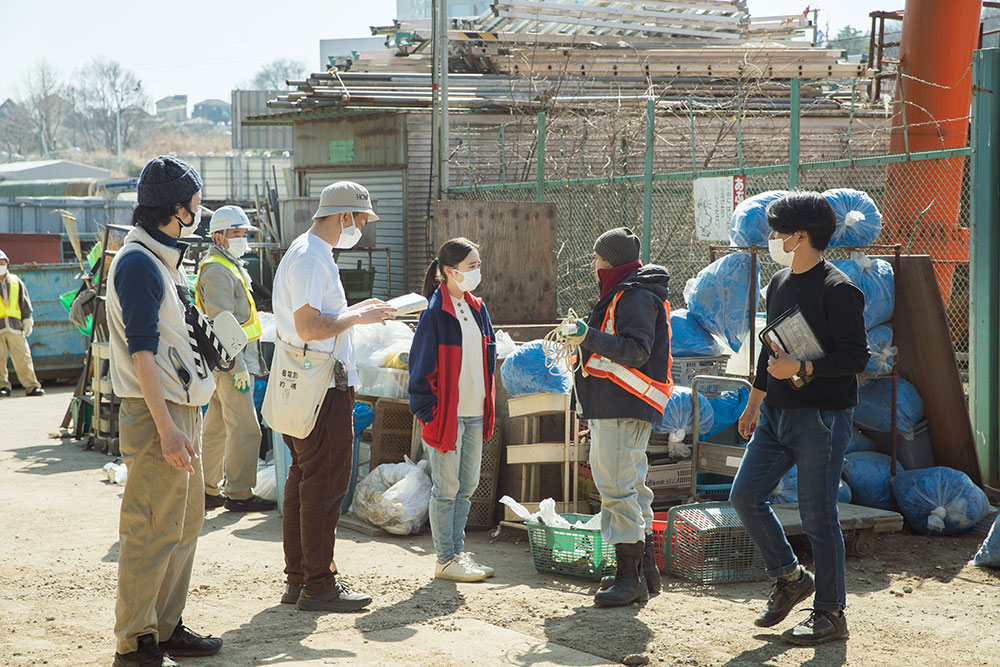![“Search” Director of Photography Naoya Ikeda Only people who face the work. What is the strength of a small staff? [Director's Interview Vol.182]](https://cinemore.jp/images/710ebb55b7c25215fce4556ef4a2f0b714a5f41f7705e1ab7aa321895f7a87eb.jpg)
“Search” Director of Photography Naoya Ikeda Only people who face the work. What is the strength of a small staff? [Director's Interview Vol.182]
The significance of a small staff
Q: I heard that Director Katayama wanted to extend the filming period, so (due to budgetary constraints) he decided to film with a small staff. What was the actual filming like?
Ikeda: The technical part's work is not just about shooting. It is also important to protect the data that has been shot and to store the undeveloped film, as they used to call it. Several staff members are in charge of a wide range of tasks such as turning the camera, adjusting the focus, creating lighting, managing the equipment, etc., but this time, when only one or two people are doing it, it's natural that the concentration is divided. Even when you should be concentrating on the performance in front of you, you have to keep your mind on other things. The most difficult part was finding a balance.
However, shortening the shooting period was not an option. If we had done it the normal way and evenly, it would have ended up being ordinary, so we prioritized something that had something "good" about it.
Also, by having this be Katayama's first commercial work, I wanted to make it known that Katayama Shinzo's films take time.

“Search” ©2022 “Search” Production Committee
Q: By extending the shooting period, you can do multiple takes until you are satisfied with the result and you can increase the number of shooting locations, but what other benefits does it bring?
Ikeda: There are also benefits to having a small staff. Especially since we were shooting during the COVID-19 pandemic, it was often easier to work with a smaller number of people. If you think about things simply, there are many good things. For example, when shooting in a small room, the more staff there are, the lower the work efficiency. But if there are fewer people, the work efficiency increases. Also, by reducing the number of people, the only staff on the set are familiar faces and are only on the side of Katayama's team. If there are a lot of people, there are bound to be staff members who are not committed to the work.
In fact, this small group system is also the same as that of Daisaku Kimura (my teacher). A photographer who has been working for 50 to 60 years, he ultimately chose a group of about 15 people. Daisaku says, "I wonder which is stronger: a group of 50 staff members, 30 of whom are facing the work, and the remaining 20 are not, or a group of only 15 people, all of whom are facing the work."
The end credits of " Tsunenaga: The Strangers " (2009), which Daisaku directed and filmed, say "Friends" instead of "Cast and Staff." Watching Daisaku's work up close, I felt that there must be something special about this group of 15 people, so I had no reservations about the small group size this time.
Trailer for "Tsurugidake: The Point of the Record"
Q: Isn't it difficult to work on a large-scale film like "Kizan: The Legend of 1900" with a small staff?
Ikeda: I participated in " Carrying Spring " (2014), and although filming is certainly tough, it's over quickly. Also, for "Kenkyu: The Point of the Shoot," there were about three assistants and they were using three or four film cameras (usually one camera has two or three assistants), but the amount of footage they shot in a day wasn't that much, so they were able to take their time adjusting the lighting and camera positions, and it seemed like they were done after one or two takes. In that respect, the Kimura and Katayama teams have a similar feeling.

